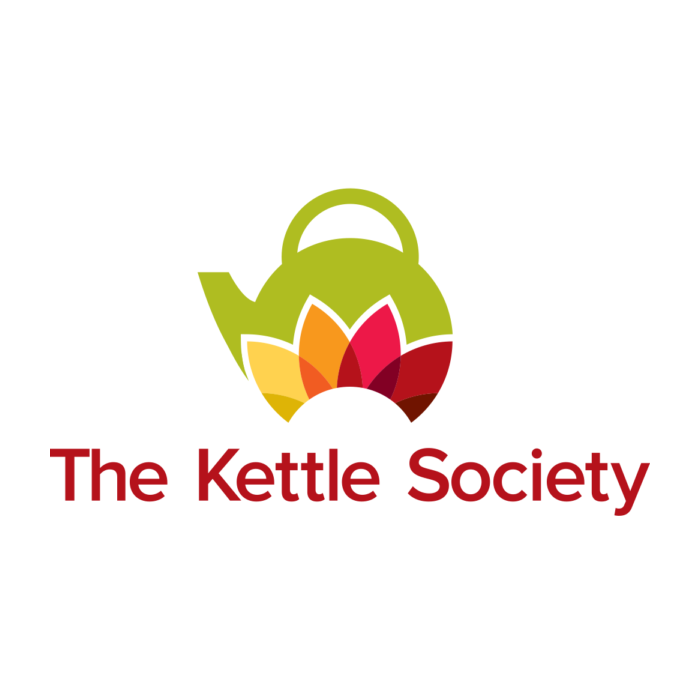From Mental Health to Mental Wealth – Kagan Goh’s story
Kagan Goh is an award-winning filmmaker, published author, spoken word poet, playwright, actor, mental health advocate, and activist. He works as a Mental Health Worker for The Kettle Society - this is a story of his journey from mental health to mental wealth.
Born in Singapore in 1969, Kagan immigrated with his family to Canada in 1986 and ended up in Vancouver in his late teens. At the age of twenty-three, he was arrested as a result of an episode of psychosis and was diagnosed with manic depression, also known as bipolar mood disorder.
“For the next 14 years of my life, through the highs of mania, the terrors of psychosis and the lows of depression, I had countless hospitalizations at Saint Paul's Hospital psychiatric ward. It became a revolving door through the psychiatric system - almost one hospitalization a year.
I wasn't able to work.
I wasn't able to go to school.
I could hardly hold on to my friends.
I was living on disability benefits but $906.42 was hardly enough to make ends meet or much less subsist or survive. At that time I was so heavily sedated on anti-psychotic drugs, I was sleeping between 16 to 20 hours a day.
I’d describe it as a chemical straitjacket when you're so heavily sedated. It's almost like you in a comatose state - it wasn't a life”.
Introduction to The Kettle Society
Kagan didn’t know how to change his situation and was struggling to get by when he heard about The Kettle lunch program. For $1.00 he could have a warm, filling and nutritious meal. This was his saving grace, he described. At the time, dragging himself out of bed to go down for the dollar lunch at The Kettle was the only time he would be awake. He would continue visiting the drop-in faithfully for a few years.
“The name – The Kettle Friendship Society says it all. It’s a friendly place. I made friends there, found companionship and camaraderie. The staff was kind, compassionate and caring. It was a safe place, like a haven or a sanctuary.
The Kettle became almost like a beacon in a storm, a safe harbor for people like me to come to through the choppy seas – the storm of my mental health journey.”
With the help of his doctor, Kagan found the right dose of medication and life-style changes to keep him stable for the past 18 years without any major relapses. Much of Kagan’s recovery was focused on Mary Ellen Copeland's WRAP or Wellness Recovery Action Plan - wellness strategies which taught him crisis prevention, crisis intervention and post crisis recovery for mental health.
Becoming a Mental Health Worker
Kagan was inspired to help others in their recovery and began volunteering answering phones as a receptionist at a mental health foundation. He went on to receive training from Vancouver Coastal Health to work in early psychosis intervention and as a WRAP facilitator for The Northshore Psychiatric Services at Lionsgate Hospital.
“I saw people whose light had become so dim, find meaning and purpose and have the spark return to their eyes after supporting them in building their lives back together through wellness strategies. I was inspired to dedicate my life to helping people with mental health challenges, addictions and/or experiencing homelessness and poverty. ”
Kagan attended Douglas College to train as a community social service worker and found himself in a full-circle moment – a practicum at The Kettle Society. He went on to receive a permanent placement at the drop-in as a Mental Health Worker. Eight years later, Kagan works at Kettle on Burrard – a 140 unit supportive housing site, he refers to as the Shangri-la of social housing.
He is proud to provide a clean, safe, supportive environment for clients – from the meal program to the games room, community garden and support groups for both socialization and recovery. Despite the challenges of Covid, Kagan and his team are dedicated to reducing isolation and creating an atmosphere of care and compassion.
From Mental Health to Mental Wealth
As both a mental health consumer survivor and also a mental health provider, Kagan has unique insights and perspective.
“Stigma is insidious – it’s like fighting an invisible enemy. You can’t see them, but you can feel the impact through friends, family, complete strangers. You feel helpless and the judgement of others gets turned inward as self-hate.
Sometimes it feels like society would have us pushed to the margins, not being seen or heard. We’re a part of society though, everyone belongs, you know? We have to find a way to make this world a more compassionate, kind and safer place for all of us”.
Outside of his role as a Mental Health Worker, Kagan is a spoken word artist, essayist and poet. He uses written word to express his emotions about experiencing the exhilarating highs and frightening lows that characterize bipolar disorder. His most recent publication: Surviving Samsara published by Caitlin Press chronicles his 28 year journey of recovery from mental health can be purchased at Chapters Indigo stores and Book Warehouse.




